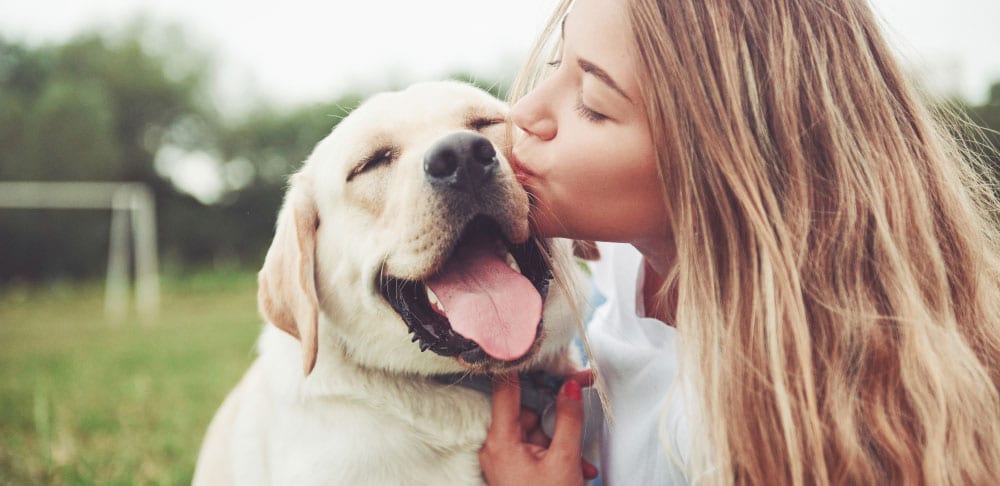Compare pet insurance
Looking into pet insurance for your beloved furry friend? Whether you have a playful pup or a curious cat, you can compare pet insurance options from a range of providers and find the perfect coverage that suits your pet's unique needs and your budget.
 Fetch Care Plan
Fetch Care Plan |
|---|
Pet insurance we think you’ll love. 24/7 vet support + dental, physio and behaviour cover added (see PDS) all in one app.More details |
Important Information
Check the PDS and TMD on the provider’s website to make sure this product is right for you and your pet. If you join Fetch with our link, we'll get a referral commission, no extra cost to you. For any further questions please email [email protected].
 Petsy Most Popular 80% Cover $150 Excess
Petsy Most Popular 80% Cover $150 Excess |
|---|
Protect your furry friend with Petsy's pet insurance policy. Get a free quote.More details |
For pets of 1-year-old and over: 6 months
Important Information
It is important to compare the levels and types of cover offered by each insurance company and product. Not all product features are shown and the exact product wording and features can vary by insurance company, so it is important that before purchasing you always read the PDS on the provider website and policy wording to ensure the product meets your needs.
Petsy Pty Ltd (ABN 54 633 343 058, AR 1277359) (‘Petsy’) distributes and promotes Petsy Pet Insurance as an authorised representative of Knose Financial Services Pty Ltd (ABN 38 620 795 735, AFSL 36651) (‘Knose’). Knose is an underwriting agency acting under a binding authority as an agent for the insurer; (a) Pacific International Insurance Pty Limited (ABN 83 169 311 193) (’Pacific) in elation to policies from 01 March 2023 or have an anniversary renewal date from 18 March 2023, and (b) the Australia branch of Allied World Assurance Company, Ltd (ABN 54 163 304 907) (‘Allied World’) in relation to policies purchased between 17 February 2022 and 28 February 2023 (inclusive) or renewed between 01 March 2023 and 17 March 2023 (inclusive).In all aspects of arranging this product, Petsy and Knose act as an agent of Pacific/Allied World (as the case may be) and not as your agent. Any advice contained on this website is general advice only and has been prepared without taking into account individual objectives, financial situation or needs and you should consider the appropriateness of any such advice, the Product Disclosure Statement (‘PDS’’) (Allied World PDS) and the Target Market Determination (‘TMD’’) (Allied World TMD) available via www.petsy.com.au or by calling 1300 952 790 before making a decision to acquire, or to continue to hold, the product.
Terms, conditions, limits and exclusions apply. Please refer to the PDS.
 Fetch Premium Plan
Fetch Premium Plan |
|---|
Pet insurance we think you’ll love. 24/7 vet support + dental, physio and behaviour cover added (see PDS) all in one app.More details |
Important Information
Check the PDS and TMD on the provider’s website to make sure this product is right for you and your pet. If you join Fetch with our link, we'll get a referral commission, no extra cost to you. For any further questions please email [email protected].

|
|---|
Multi-award winning pet insurance designed with the help of vets.More details |
- Dental illness
- Behavioural problems
- Specialised therapies
- Pets under 1 year old: 14 days
- Pets 1 year old and over: 6 months
Important Information
Knose Pet Insurance offers a Pre-existing Condition assessment that can be completed after the purchase of a policy to help the policy holder understand what we consider to be a Pre-existing Condition and therefore excluded from the cover.
* As long as You continue to hold the cover, pay Your Premium when it falls due and meet the conditions of cover, We will not refuse to provide You with a Renewal Policy due to the number of claims You may have made or if Your Pet has developed chronic conditions.
Pre-existing conditions and other exclusions, terms & conditions apply. Please see the Product Disclosure Statement for more details.
Any advice provided is general advice only and has been prepared without taking into account individual objectives, financial situation or needs and you should consider the appropriateness of any such advice, the Product Disclosure Statement (‘PDS’’) (Allied World PDS) and the Target Market Determination (‘TMD’’) (Allied World TMD) available via www.knose.com.au or by calling 1300 356 642 before making a decision to acquire, or to continue to hold, the product. Terms, conditions, limits and exclusions apply. Please refer to the PDS.
 Petsy Value Cover 80% Cover $500 Excess
Petsy Value Cover 80% Cover $500 Excess |
|---|
Protect your furry friend with Petsy's pet insurance policy. Get a free quote.More details |
For pets of 1-year-old and over: 6 months
Important Information
It is important to compare the levels and types of cover offered by each insurance company and product. Not all product features are shown and the exact product wording and features can vary by insurance company, so it is important that before purchasing you always read the PDS on the provider website and policy wording to ensure the product meets your needs.
Petsy Pty Ltd (ABN 54 633 343 058, AR 1277359) (‘Petsy’) distributes and promotes Petsy Pet Insurance as an authorised representative of Knose Financial Services Pty Ltd (ABN 38 620 795 735, AFSL 36651) (‘Knose’). Knose is an underwriting agency acting under a binding authority as an agent for the insurer; (a) Pacific International Insurance Pty Limited (ABN 83 169 311 193) (’Pacific) in elation to policies from 01 March 2023 or have an anniversary renewal date from 18 March 2023, and (b) the Australia branch of Allied World Assurance Company, Ltd (ABN 54 163 304 907) (‘Allied World’) in relation to policies purchased between 17 February 2022 and 28 February 2023 (inclusive) or renewed between 01 March 2023 and 17 March 2023 (inclusive).In all aspects of arranging this product, Petsy and Knose act as an agent of Pacific/Allied World (as the case may be) and not as your agent. Any advice contained on this website is general advice only and has been prepared without taking into account individual objectives, financial situation or needs and you should consider the appropriateness of any such advice, the Product Disclosure Statement (‘PDS’’) (Allied World PDS) and the Target Market Determination (‘TMD’’) (Allied World TMD) available via www.petsy.com.au or by calling 1300 952 790 before making a decision to acquire, or to continue to hold, the product.
Terms, conditions, limits and exclusions apply. Please refer to the PDS.
 Petsy Top Cover
Petsy Top Cover |
|---|
Protect your furry friend with Petsy's pet insurance policy. Get a free quote.More details |
For pets of 1-year-old and over: 6 months
Important Information
It is important to compare the levels and types of cover offered by each insurance company and product. Not all product features are shown and the exact product wording and features can vary by insurance company, so it is important that before purchasing you always read the PDS on the provider website and policy wording to ensure the product meets your needs.
Petsy Pty Ltd (ABN 54 633 343 058, AR 1277359) (‘Petsy’) distributes and promotes Petsy Pet Insurance as an authorised representative of Knose Financial Services Pty Ltd (ABN 38 620 795 735, AFSL 36651) (‘Knose’). Knose is an underwriting agency acting under a binding authority as an agent for the insurer; (a) Pacific International Insurance Pty Limited (ABN 83 169 311 193) (’Pacific) in elation to policies from 01 March 2023 or have an anniversary renewal date from 18 March 2023, and (b) the Australia branch of Allied World Assurance Company, Ltd (ABN 54 163 304 907) (‘Allied World’) in relation to policies purchased between 17 February 2022 and 28 February 2023 (inclusive) or renewed between 01 March 2023 and 17 March 2023 (inclusive).In all aspects of arranging this product, Petsy and Knose act as an agent of Pacific/Allied World (as the case may be) and not as your agent. Any advice contained on this website is general advice only and has been prepared without taking into account individual objectives, financial situation or needs and you should consider the appropriateness of any such advice, the Product Disclosure Statement (‘PDS’’) (Allied World PDS) and the Target Market Determination (‘TMD’’) (Allied World TMD) available via www.petsy.com.au or by calling 1300 952 790 before making a decision to acquire, or to continue to hold, the product.
Terms, conditions, limits and exclusions apply. Please refer to the PDS.
Disclaimer: Savvy is not advising or recommending any particular product to you. We provide general information on products for the purposes of comparison, but your personal situation or goals are not considered here. Although we try to make our comparisons as thorough as possible, we do not have information on all products on the market on our site.
Savvy earns a commission each time a customer buys a pet insurance policy through our website. We don’t arrange for products to be purchased from these brands directly, as all purchases are conducted via the individual pet insurance companies.
You should always consult a given offer's PDS or further documentation in the process of deciding on which loan to choose, as well as seeking independent, professional advice. If you decide to apply with one of the lenders listed above via our website, you will not be dealing with Savvy; any applications or enquiries will be conducted directly with the lender offering that product.
Pet insurance is an important consideration for dog owners in Australia. Unexpected health issues, accidents and emergencies can lead to substantial vet bills, but pet insurance can provide protection against such financial burdens. If you’re looking for cover for your dog, Savvy can help.
Our 100% free comparison service allows you to compare pet insurance quotes side by side in moments. Simply fill out an online form about you, your dog and the cover you're after and receive quotes from our insurance partners. Get started on your quote today!
What does pet insurance for dogs cover?
In Australia, there are three main types of pet insurance available, each offering different levels of coverage:
Accident-only
This basic level of insurance generally has lower claim limits and offers more limited coverage, covering only medical expenses resulting from accidents. This could include:
- Injuries from car accidents
- Burns
- Electrocution
- Insect and snake bites
- Poisoning
- Ingesting a foreign object
Accident and illness
Offering a higher level of coverage compared to accident-only plans, this option includes not only coverage for accidents but also a broader range of illnesses. This can encompass various health issues, such as:
- Cancer
- Skin, eye and ear conditions
- Paralysis tick
- Gastrointestinal issues
- Hereditary and congenital conditions
Comprehensive
Comprehensive plans generally have higher annual limits and can cover the majority of your vet bill, reducing your out-of-pocket expenses. This level of insurance provides coverage for accidents and illnesses and can include routine care as an optional extra. Depending on your policy, routine care could include:
- Microchipping
- Vaccinations
- Desexing
- Flea and tick control
Which pet insurance is best for you depends on various factors, such as your dog’s breed, age and health, your budget and the sort of coverage you desire. It's important to consider these aspects to help you find a policy that aligns most closely with your specific needs and provides the necessary protection for your canine companion.
Does pet insurance for dogs have any restrictions or exclusions?
Pet insurance for dogs often comes with certain restrictions and exclusions that policyholders should be aware of. These restrictions and exclusions can vary depending on the insurance provider and the specific policy you choose, but some of the most common include:
- Pre-existing conditions: pre-existing conditions are health issues or symptoms that your dog had or was diagnosed with before the policy’s start date. Make sure to carefully review the policy’s definition of pre-existing conditions to understand what is and isn’t covered.
- Waiting periods: many policies have waiting periods before certain types of coverage become active. For example, a policy might have a 14-day waiting period for illness coverage, meaning that if your dog gets sick within the first 14 days of the policy, the illness won’t be covered.
- Age limits: some policies have age restrictions, meaning they may not provide coverage for dogs that are below or above a certain age, usually providing cover for animals between eight weeks and nine years old. Older dogs might also have limited coverage options or higher premiums due to increased health risks.
- Breed-specific exclusions: certain breeds are prone to specific health conditions. Some policies might exclude coverage for those conditions for certain breeds. It’s important to review the policy to see if your dog’s breed is subject to any exclusions.
- High-risk activities: some policies may exclude coverage for injuries or accidents that occur during certain high-risk activities, such as dog fighting, racing or dangerous sports.
- Routine care and preventative treatments: while comprehensive plans might cover preventative care like vaccinations and routine check-ups as optional extras, not all policies include these benefits.
- Cosmetic procedures: procedures that are considered cosmetic or elective may not be covered by pet insurance.
- Pregnancy and breeding: many policies exclude coverage for pregnancy, breeding-related expenses or complications arising from breeding activities. However, on some comprehensive pet insurance policies, you may be covered for getting your dog desexed.
What influences the cost of pet insurance for dogs?
Several factors can impact how much you pay for pet insurance for dogs. This includes:
- Breed and size: certain dog breeds are susceptible to specific genetic issues or health conditions – for example, Dachshunds are prone to intervertebral disc disease (IVDD). Larger dogs might also have higher medical costs due to their size.
- Age: the age of your dog plays a significant role in premium calculations. Younger dogs generally have lower premiums as they are less likely to have pre-existing health conditions. Older dogs may have higher premiums due to the increased risk of age-related health issues.
- Health record: your dog’s health history, including any pre-existing conditions, can impact the cost. Some policies may exclude coverage for pre-existing conditions or charge higher premiums to account for them.
- Location: your geographical location can impact insurance costs. Vet care expenses can vary between regions, influencing the overall risk assessment for insurers.
- Coverage: the type of coverage you select can affect the cost. Comprehensive plans covering accidents, illnesses and preventative care tend to be more expensive than accident-only or accident and illness plans.
- Annual limits and benefit percentage: policies with higher annual limits and benefit percentages may result in higher premiums, as they offer more extensive coverage for medical expenses.
- Excess: opting for a higher excess (the amount you pay before the insurance coverage kicks in) can lead to lower premiums.
- Claim history: some insurers may consider your past claim history, especially if you've frequently made claims for your pet dog.
The types of pet insurance
Why compare pet insurance through Savvy?
Out comparison service is free to use, providing you with a range of pet insurance quotes at no cost.
You'll be able to compare offers online side by side in a matter of minutes before you buy.
We've partnered with a range of pet insurers to give you more choice when selecting a policy.
Top tips for saving on pet insurance for your dog
Frequently asked questions about pet insurance for dogs
Pet insurance serves an important purpose, providing financial security and peace of mind by ensuring that you can afford necessary medical care for your dog in case of unexpected, covered emergencies or illnesses. Even if your dog is currently healthy, pet insurance acts as a safety net, ensuring you’re prepared for unexpected accidents or illnesses that may arise in the future and are included in your policy’s coverage, so may be worth considering.
Yes – many insurance providers offer coverage for senior pets. However, note that premiums might be higher due to the potential health risks associated with age, and policy options may be limited as a result of age restrictions.
Yes – you can switch your pet insurance policy at any time. However, you should check your insurance contract before making any changes to see if you will be subject to any cancellation fees or eligible for a refund. If you’re looking for a new pet insurance policy for your dog, you can compare plans with Savvy today.
Insuring dogs is usually slightly more expensive than insuring cats. This is primarily due to dogs being larger animals, engaging in more outdoor activities that can lead to injuries and experiencing a higher number of accidents on average.
If your dog requires treatment during the waiting period, you may not be eligible to claim those expenses under your pet insurance. However, many policies do not have waiting periods for accidental injuries, meaning your dog can be covered for these incidents from day one.
The cost of insuring a dog can vary based on factors like breed, age and location. Generally, larger dog breeds and those prone to certain health issues, such as French Bulldogs, may have higher insurance premiums due to the potential for greater medical expenses.
Yes – some dogs may be excluded from standard cover because of their breed or the job they do. For example:
- Working dogs and dogs used for police or security purposes.
- Breeds banned by the Australian government, or dogs that are crossed with a banned breed.







































